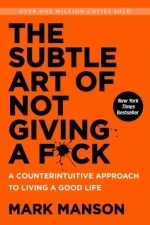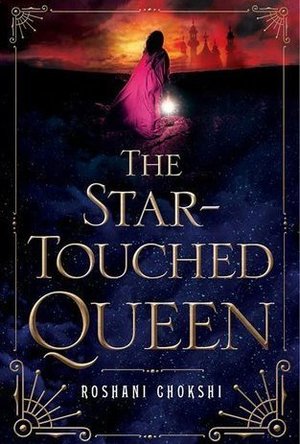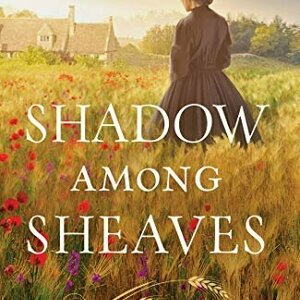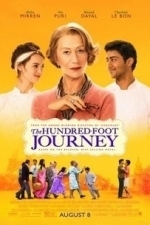
Marvin.ie - Order Takeaway
Food & Drink and Lifestyle
App
Order food from your local takeaways with Marvin’s clever free app. You get easy access to...
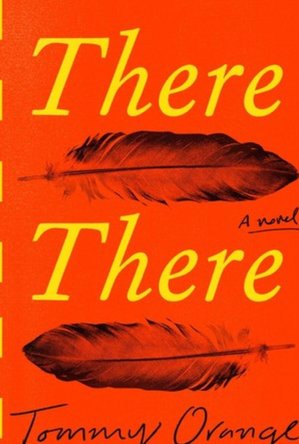
There There
Book
Fierce, angry, funny, heartbreaking—Tommy Orange’s first novel is a wondrous and shattering...
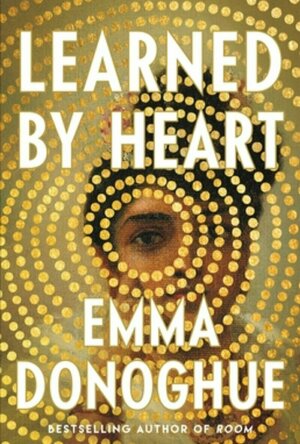
Learned by Heart
Book
Adding to the already moving, richly told and gripping collection of historical fiction from Emma...
Historical fiction
For one, it claims to be an anti-self-help book but in fact it is, not only that it repeats phrases that other books use often but it reiterates it in a much more uglier fashion by replacing every other word with "f**k".
Secondly, the author is actually incredibly sexist throughout the whole book - revealing that this book is for a privileged white, male audience. He flashes his wealth throughout the book by even saying "I come from a wealthy family" and 'this doesn't apply to an Indian family who need an extra $10'. And then talks about his sexual exploits with women, saying that one of his former goals was to "be with more women" - like women are collective objects. He's boastful about sleeping around throughout, referring to women in a derogatory way.
The chapter on false memories and child sexual abuse is shocking, absolutely no disclaimers, just a rookie spouting off information that he clearly had no idea about. He discounts thousands of horrific accounts as if they're something imagined up and to be gotten over with. An extremely precarious viewpoint.
The irony is that the author describes himself perfectly here: "People declare themselves experts, entrepreneurs, inventors, innovators, mavericks, and coaches without any real-life experience. And they do this not because they actually think they are greater than everybody else; they do it because they feel that they need to be great to be accepted in a world that broadcasts only the extraordinary." And this pretty much sums up the book.
Kyera (8 KP) rated The Star-Touched Queen (The Star-Touched Queen, #1) in Books
Feb 1, 2018
I was very intrigued by the premise of the story, as not only does it include elements of Indian folklore but it is a re-telling of the Hades and Persephone myth. As a huge fan of Greek mythology, that was the aspect of the story that I was most excited to experience. Amar and Maya are our Hades and Persephone, although it is a unique story and you don't feel like you're reading a re-telling.
As strange as it seems, my favourite character was actually the demon horse Kamala. Although she could be really creepy when she salivated over eating people, she could be funny and made some of the scenes for me. Although I liked Amar, Maya and the other supporting characters I didn't relate strongly to any of them so it made me less invested in the book. I wish I did like them more because I would have loved to have stronger feelings about this gorgeous book.
Overall, I really enjoyed reading this book and would recommend it - but it didn't make any strong or lasting impact on me. Readers who are fans of flowery prose and very descriptive writing will enjoy Roshani Chokshi's writing style, but if you are a fan of more simple sentences you might have difficultly getting through this book.
David McK (3679 KP) rated The Lone Warrior (Jack Lark, #4) in Books
Jan 30, 2019
The novel starts out pretty much as it means to go on, with Jack rescuing someone from her indentured lifestyle, then agreeing to accompany her home to Delhi, arriving just in time to get caught up in the mutiny.
Despite holding a British passport myself (well, Northern Irish ...) this is actually a subject that I don't think we were ever taught anything about while I was at school. Sure, I'd heard of it, but only through word-of-mouth, and only ever forming a general impression of it rather than having any real knowledge of the cause, or the effects. As such, and (I.M.O.) like all the best kinds of historical fiction, I actually learned something while simultaneously being entertained (by the general story, NOT by the rather graphic depictions of some of the more harrowing events).
Talking of that story, I also feel that the book could (almost) be split into at least three distinct sections: Jacks journey to Delhi, his involvement in the siege of the British magazine while within it, and the final - and longest - part his involvement in the siege and (partial) recapture of the city.
Like the best of the Sharpe books (a hackneyed comparison, I know, but apt), I also read through this one in only a matter of days - always the sign of a good book!
MaryAnn (14 KP) rated Shadow Among Sheaves in Books
Nov 4, 2019
My Thoughts: In this novel, we learn about Britain's history of "The Great Rebellion" and how it affected the lives of both the British and of those whose homeland is India. The author brings the reader back to the customs of that era and of each nationality. It gives the reader focus on how the characters may feel and react in the story.
I really love the book of Ruth in the Bible and enjoyed how this novel mirrored that book. The author has done an incredible job of bringing this novel into perspective with the Biblical story of Ruth. The author has done an incredible amount of research to bring us a novel that shows the reader what it may feel like to be cast out, to be in a foreign land with different customs and to successfully parallel it to a biblical book in the Bible.
This is a book about redemption, love, and trusting in God. I truly enjoyed this novel and highly recommend it.
Gareth von Kallenbach (980 KP) rated The Hundred-Foot Journey (2014) in Movies
Aug 6, 2019
Films always have a location, but while “The 100 Foot Journey” is set in small town France, the story really exists at the crossroads of two fiercely independent culinary traditions. Throughout the film, Indian and French cuisines feed the visual storytelling and nourish the scenes.
As the leading man, Hassan, actor Manish Dayal plays a convincing chef struggling between two cultural and culinary worlds. But it is the support of Papa, Hassan’s can-do attitude driven father, played by actor Om Puri, and Michelin star obsessed know-it-all neighbor Madame Mallory (Helen Mirren) that invigorate the screen.
Simple yet engaging, plot is not where “The 100 Foot Journey” excels. Opting to focus on subtle interpersonal scenes, the film lacks twists, suspense, and grand surprises. Instead “The 100 Foot Journey” explores the joys, sorrows, and revelations that happen when two culinary histories and lifestyles meet. The journey highlights the challenges faced with preserving tradition while also carving a new path.
Consumables garnish almost every moment of character interaction; food plays a role in careers, conflicts, and mutual understanding. It could be easy, and not entirely wrong, to write-off this picture as a feel good foodie flick. However, just like a good croissant, “The 100 Foot Journey” is worth more than a deceptively uncomplicated a first glance; it contains flavorful and complex layers upon further examination. Be it a story of coincidence, lucky, or fate, “The 100 Foot Journey” is worth a taste if not a feast.

Gaminator - Casino Slots
Games
App
The waiting is over: The one and only true Gaminator App is now available on your mobile device!...
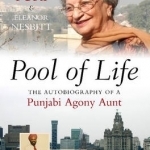
Pool of Life: The Autobiography of a Punjabi Agony Aunt
Kailash Puri and Eleanor Nesbitt
Book
Eleanor Nesbitts introduction contextualises the life of Kailash Puri, Punjabi author and agony...
